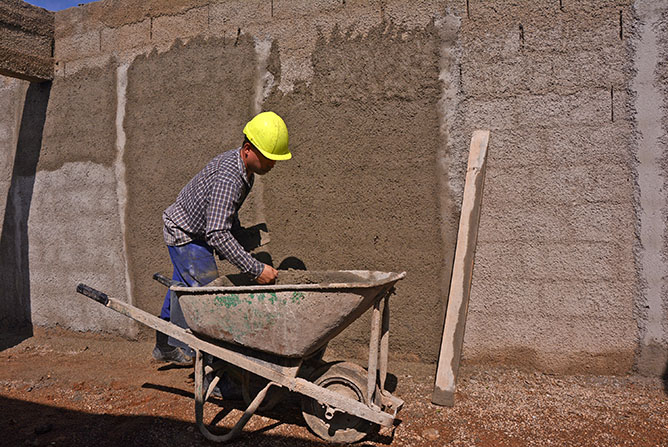
For this year in Ciego de Ávila, no new housing construction subsidies were approved and in 2022, there were only 35. However, the pending ones add up to more than 500.
The data offered by Joel Granados Macías, a specialist in the Subsidy Program at the Provincial Housing Directorate, is preceded, and succeeded, by apostilles, because none of them is able to accurately show the reality that it describes. It should clear up, almost every time.
If you are talking, for example, about the 2023 plans, you should specify that they are, for the most part, subsidies approved in 2018, so that, for not a few, there is a five-year lag and some will need more time.
That is why you also have to make the caveat that, of the 548 pending, only 412 are included in this year's check-ups and plans. Data that, in turn, could seem “exaggerated” if we show the compliance schedule, at the end of May.
Until that date, only 72 subsidies had been concluded and the figure was not even half of what was projected for these five months, in addition to the fact that the resources "have been quite stable."
Hence, Joel shows misgivings when predicting compliance with any plan that implies allocation of materials/sufficient money for the acquisition-transportation-effort of the beneficiary to carry out the work (contracted bricklayer), support from local authorities, etc.
In such an alignment there are a few derailments and a recent history could round them out: in 2022 only 196 subsidies were completed, for 26 percent execution, and such a drop represented almost half of what was raised four years earlier, when Invasor reported 410.
The real decrease has been eloquent, even though in plans this has been a prioritized program since 2012 and the construction of a basic cell of 25 square meters represents glory for people who would not have how, by their own means, to acquire or build a home.
However, if we talk about support, the priority of politics is in question, although it is not something that Joel admits emphatically. He says that "it is being studied", "that there are proposals for the new norm", "that it is a faculty of the country and does not depend on the province", "that the money is not enough", "that today, with the amount assigned, it can't be done…”
Five months after the monetary system devalued the currency, the Council of Ministers approved Agreement 9072, and the amount for subsidies increased from 85,000.00 to 188,560.00 pesos. That is how exact the calculation had been and at that time in 2021, it gave the account, Joel says.
Two years later, other are the results. Ciego de Ávila would need another 48 million pesos to support the subsidies that it has approved.The amounts defined by regulations are unaware of the inflationary rate at which the state entities that supply resources to Housing operate.
“Locate that the carpentry for a subsidy came out two years ago at around 7,000.00 pesos and now it is around 56,000.00. Ceramics also skyrocketed, and veneer and aggregates…” Joel's list is copious and explains, in a way, why some subsidies do not come to (happily) term. Moreover, those that do?
"Generally, those who manage to finish it is because they had the resources bought a long time ago, or a family member builds them and they save money on labor, or they have transportation facilities," he suspects.
Even so, Joel considers that, in parallel, delinquency has been a constant. People who have the resources and do not finish, people who are satisfied with having the walls and the roof safe, and do not take care of the completion, without which the house is not considered finished. Families with very complex personal situations, whose cases must be evaluated by local governments for real support or for the work to be assumed by the state program and executed by the construction brigades.
However, there have also been approved records of people who have already died, or left the country, or who have sold the assigned materials and now have no way to complete their home. A review process in June 2022 updated the figures and, apart from the cancellation of some subsidies, the review showed the complexities of a program that today is not stopped, but is not advancing at the pace of its demands either.
Joel Granados supports it with two pieces of information that are, in themselves, the apostille of all the above: “Last year, barely 35 subsidies were approved and they were evaluated in detail. They are only being granted, by indication, for cases of landslides, fires, effects due to weather events, etc. In 2023, none have been approved.
